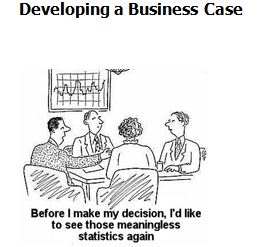Have you ever had a bright idea blocked by the stock reply: "You need to produce a business case", which usually means your idea has not fallen on fertile ground. But what's so special about a business case? In my opinion, not a lot and I doubt the real game changers in history were preceded by business cases. Here's a hypothetical example. Imagine I am working as a special adviser to the UK prime minister (I wish!) and I come up with a business case to reduce the taxation on alcoholic beverages to increase consumption. Why would the government want to do that when most responsible nations in the world are striving to make alcohol less attractive?
The starting point for my hypothesis is a real and recent report from the Institute of Economic Affairs, "Alcohol and the public purse: do drinkers pay their way?", which concludes that they certainly do. Here's the summary, italicised and extracted from the IEA website:
- This study estimates the direct costs of alcohol use to the government in England, including the NHS, police, criminal justice system and welfare system. Taken together, they amount to a gross cost of £3.9 billion per annum (in 2015 prices).
- Revenues from alcohol taxation in England amount to £10.4 billion, leaving an annual net benefit to the government of £6.5 billion.
- The estimated cost of alcohol-related violent crime is nearly £1 billion per annum. Other alcohol-related crimes, including drink-driving, add a further £627 million, leaving a total cost to the police and criminal justice system of £1.6 billion.
- The estimated cost of alcohol-related health problems is £1.9 billion. Half of this results from alcohol-related hospital admissions (£984 million). A further £530 million is due to ambulance and Accident and Emergency attendances.
- Welfare payments given to people who are unable to work because of mental or physical ill health problems that are attributable to alcohol consumption incur a further cost of £289 million.
- This study uses the most recent health, crime and drinking data to build on previous cost-of-alcohol studies. Cost-of-alcohol studies are plagued by a shortage of reliable data in several areas. This study is no exception and its estimates should be regarded as being at the top end of the plausible range. The gross cost of £3.9 billion is more likely to be an over-estimate than an under-estimate.
- It is important to distinguish between social and economic costs (most of which are paid by individuals and businesses) and the costs to government departments (i.e. the ‘cost to the taxpayer’). Intangible costs, internal costs and societal costs are often misrepresented as being costs to taxpayers. This is the first study to have looked at the total net cost of alcohol consumption to the government in England.
- Our estimates suggest that the net cost of alcohol to the state is minus £6.5 billion pounds, which is to say that drinkers subsidise non-drinkers to the order of £6.5 billion pounds a year. The government could halve all forms of alcohol duty and still receive more in tax than it spends dealing with alcohol-related problems.
But we all know that alcohol-related problems cannot just be measured in financial terms. The damage to society from excessive alcohol consumption, such as premature deaths, traffic accidents, workplace-related problems, family and domestic problems, and interpersonal violence, far outweighs the benefits of increased tax revenues. If the business case was to focus on societal issues, rather than a simple cost-benefit analysis, then there wouldn't be a case! Let me make it absolutely clear that I am in no way criticising the IEA report. It does not purport to be a business case but rather an analysis of the cost or benefit to the exchequer of alcohol consumption in England. It meets its purpose admirably and I have merely used it as a source of accurate data from which to produce my hypothetical example of how a misleading business case could be constructed.
Let's not get obsessed with myopic finance-driven business cases, particularly when complex societal issues are equated to simple monetary comparisons. Money was a great invention, particularly for simplifying trading, but when it becomes the be-all and end-all of business cases, then we really are losing sight of what 'business' is all about.
